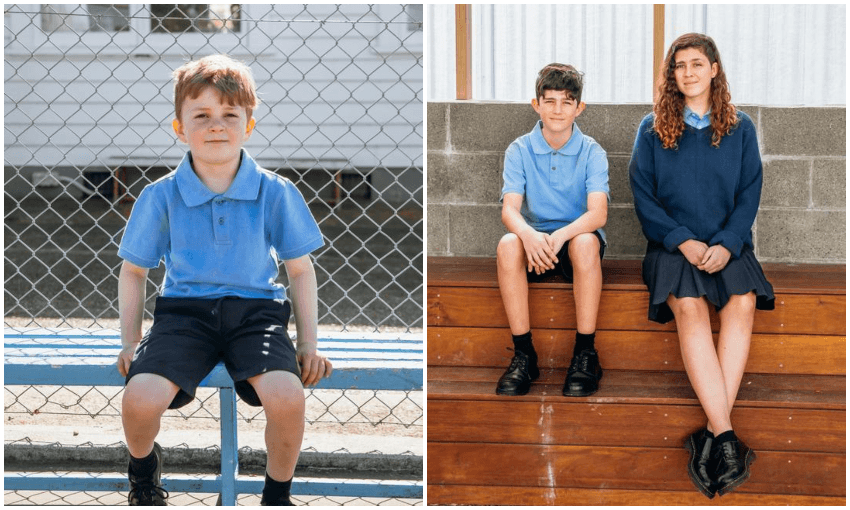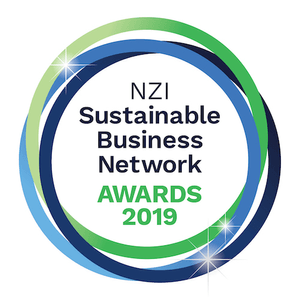Sustainable clothing maker Little Yellow Bird is poised to burst onto the school uniform market as awareness of where our wardrobe comes from grows. They just received the supreme award at the NZI Sustainable Business Network Awards for their work.
If Samantha Jones has her way, every child in New Zealand will know where their school uniform comes from and whether it has been sustainably made.
School uniforms are the latest frontier for Little Yellow Bird, the values-based manufacturer of clothing and workwear she set up almost five years ago. The startup has just kitted out the children of Horizon School in Snells Beach, north of Auckland. The school had been looking for a sustainable option, and pupils from 5-year-olds right up to year 13 will now wear Little Yellow Bird’s 100% organic rain-fed cotton garments.
As Little Yellow Bird branches out into the school uniform market its efforts to put the welfare of people and the planet alongside profit have been recognised. The company has just been named winner of the NZI Transforming New Zealand Award (Supreme Award) and Hardwired for Good category at the NZI Sustainable Business Network Awards. The company has a “deep and authentic commitment to social good throughout the organisation, business model, supply chain and funding approach”, the judges said.
The work with Horizon School has set the company up to expand their uniform offering, Jones says. “We’ve got base products for schools now, and we would be able to roll that out to other schools with different branding and different colours depending on what they needed.”
Little Yellow Bird’s is absolutely committed to ethical manufacturing, and it has been a key to its success, she says. There are plenty of other uniform companies out there and if the startup was just another one she doubts the business would have been able to grow as it has.
“Children especially shouldn’t be wearing clothing and uniforms that are likely to have been made by children in sweatshops in overseas countries. I think it’s a really nice fit, and we’re hoping to be able to get more schools and educate kids about sustainable clothing and practices.”
Little Yellow Bird certainly walks the talk. It is a certified B Corp, Living Wage Accredited, and is carbon neutral. It has a transparent supply chain which tracks every item of clothing from source to sale. All the cotton farmers and factory workers in the chain are paid fairly for the work they do, and profits are reinvested into community development projects around education, sanitary needs and healthcare for farming communities.
Little Yellow Bird’s customer base has doubled in the past year and it now supplies more than 400 organisations with uniforms and branded products including t-shirts, hoodies, aprons for bars and restaurants, business shirts, dresses, bags and tea-towels. If you need something in organic cotton, it can probably help. The firm expects revenue to at least double again in 2020.
Earlier this year it ran an equity crowdfunding campaign which raised $470,000. This has enabled the company to expand staff numbers, invest in new stock, and set itself up for future growth with a new inventory management system and updated website. It currently manufactures exclusively in India, and to help mitigate the risk of business disruption it is also investigating suppliers in other regions, Jones says.
“One of the things we spent some of the money on was recruitment and we’ve brought on a new general manager who has a lot of experience in the uniform industry, and he’s really driving looking at other regions.”
She acknowledges that climate change is a threat to the business, but it will continue to work in India for good reason.
“The area where our cotton is grown is one of the few regions in the world where it should be. Lots of cotton comes from areas where it is artificially grown because the temperature and climate are not quite right.
“We’ve even seen that in our co-operatives where there’s been flooding that they haven’t seen, ever, in 20 years. However it is a big co-operative and there’s some resilience with that, and some seasons are not as good as other seasons, but they’re definitely also aware that seasons and climates are changing and how that might potentially affect their livelihoods.”
A former logistics officer for the New Zealand Air Force, the idea for Little Yellow Bird came to Jones when she went out onto civvy street. “I always wore uniforms when I was in the Air Force. After I left, I realised I needed to buy a corporate wardrobe but I found that there was nothing out there that matched my values: fair trade, ethically-made, and sustainably produced.”
Whether or not you class Little Yellow Bird as a social enterprise depends on your definition, she says. It is definitely a socially motivated company, and getting B Corp certified early on in its development shaped its future. “It has meant that’s how we’ve intentionally grown our company to align with that framework. As we’ve grown we’ve had to ensure that we stick to all the criteria and policies.
“I think that’s been a real strength because it’s given me so many ideas on what best practice is and how to grow a really ethically minded company.”
The Spinoff is the sponsor of the “millennial on a mission” category at the 2019 NZI Sustainable Business Network Awards.

